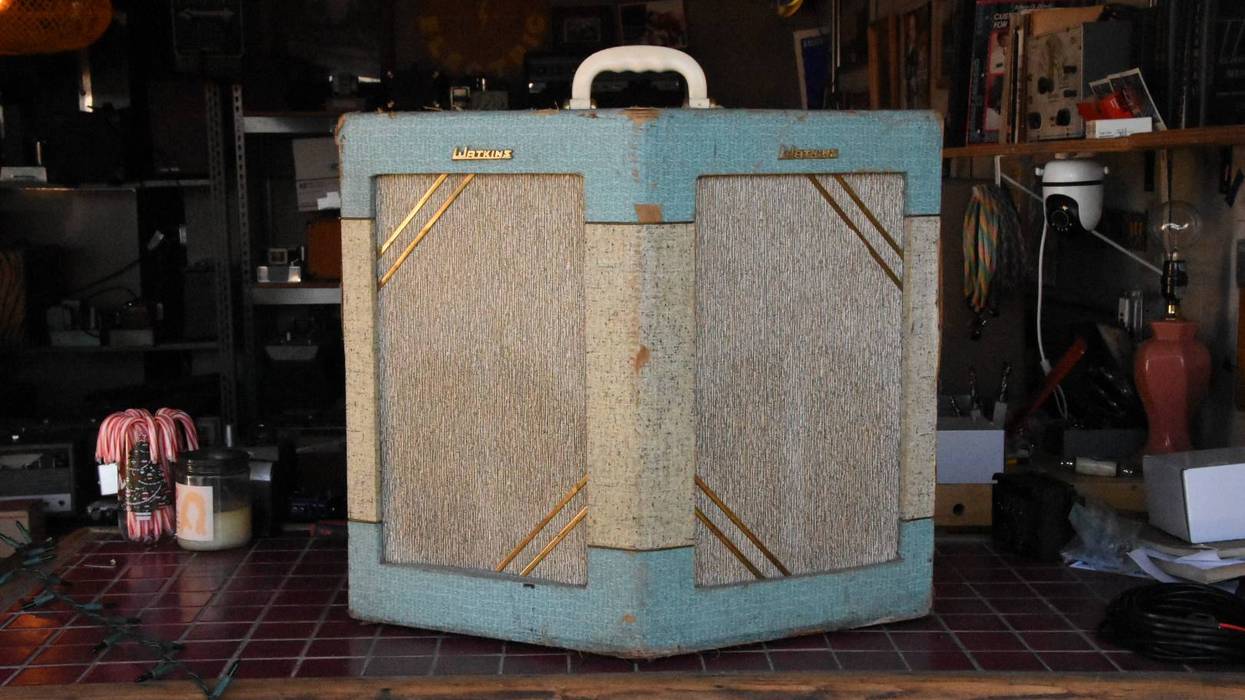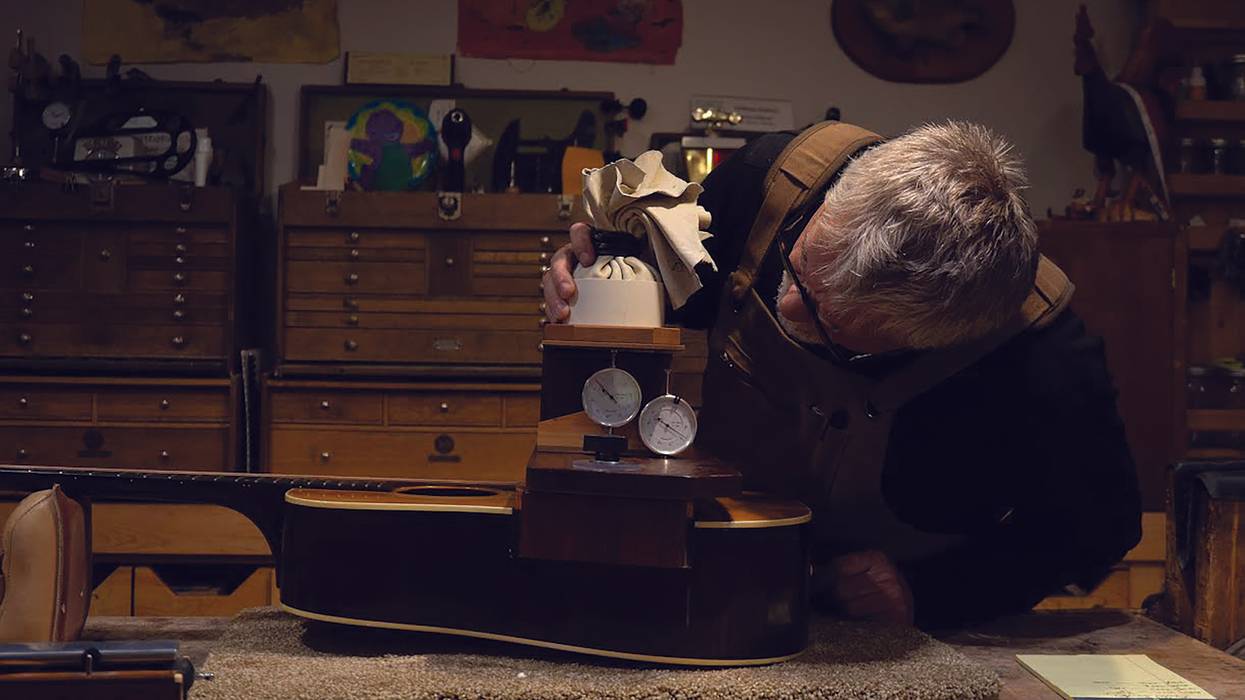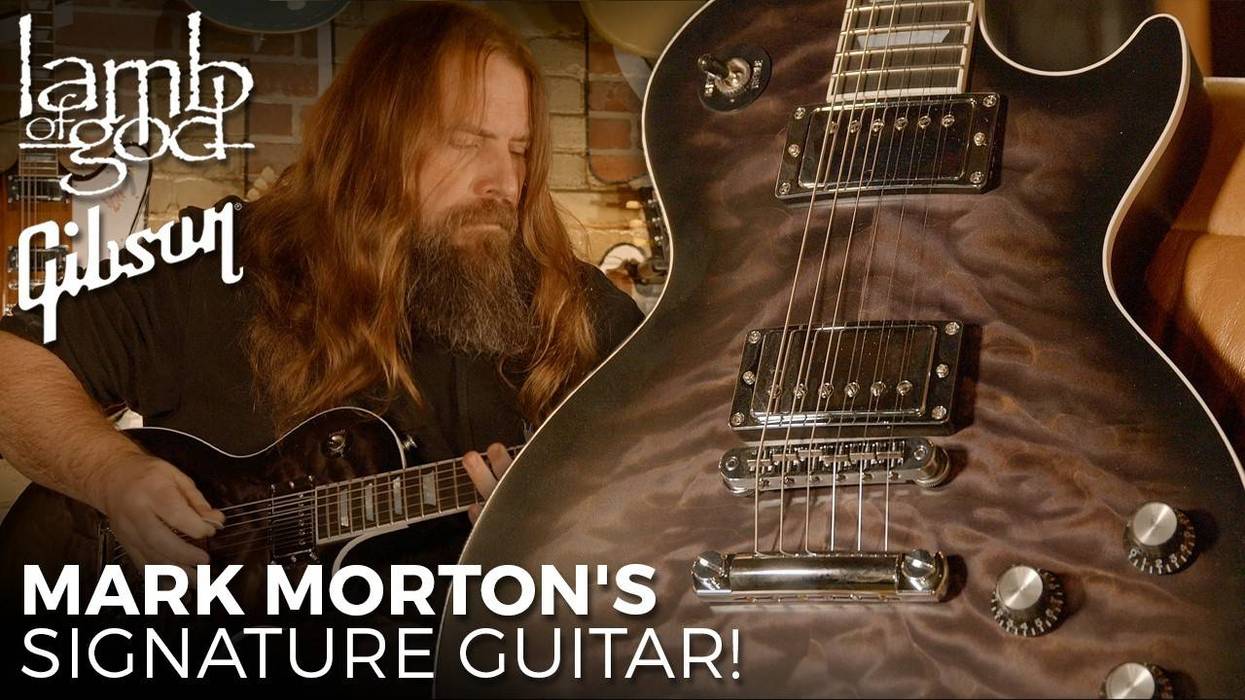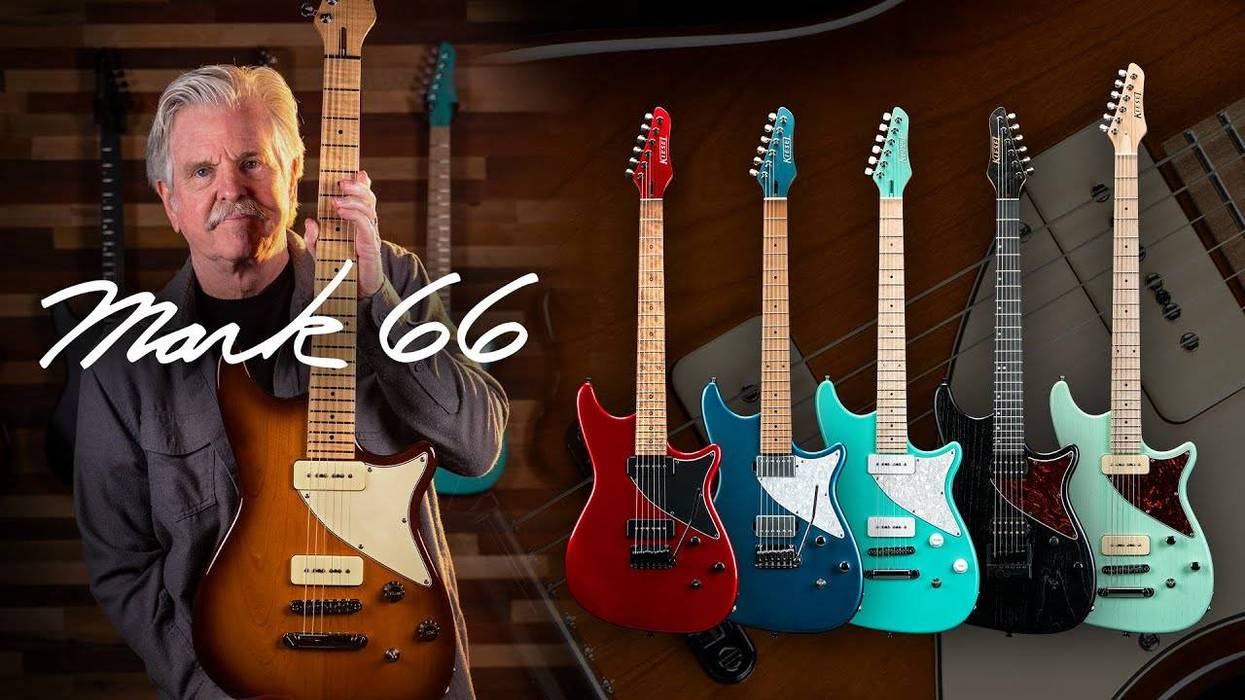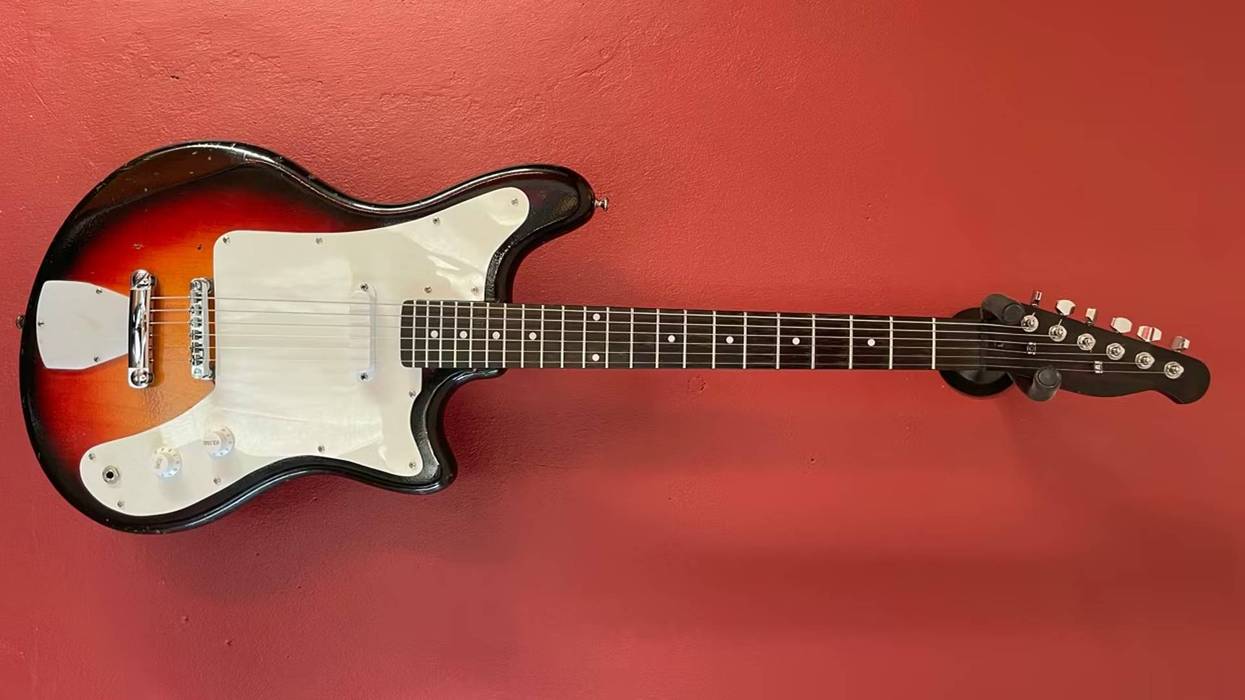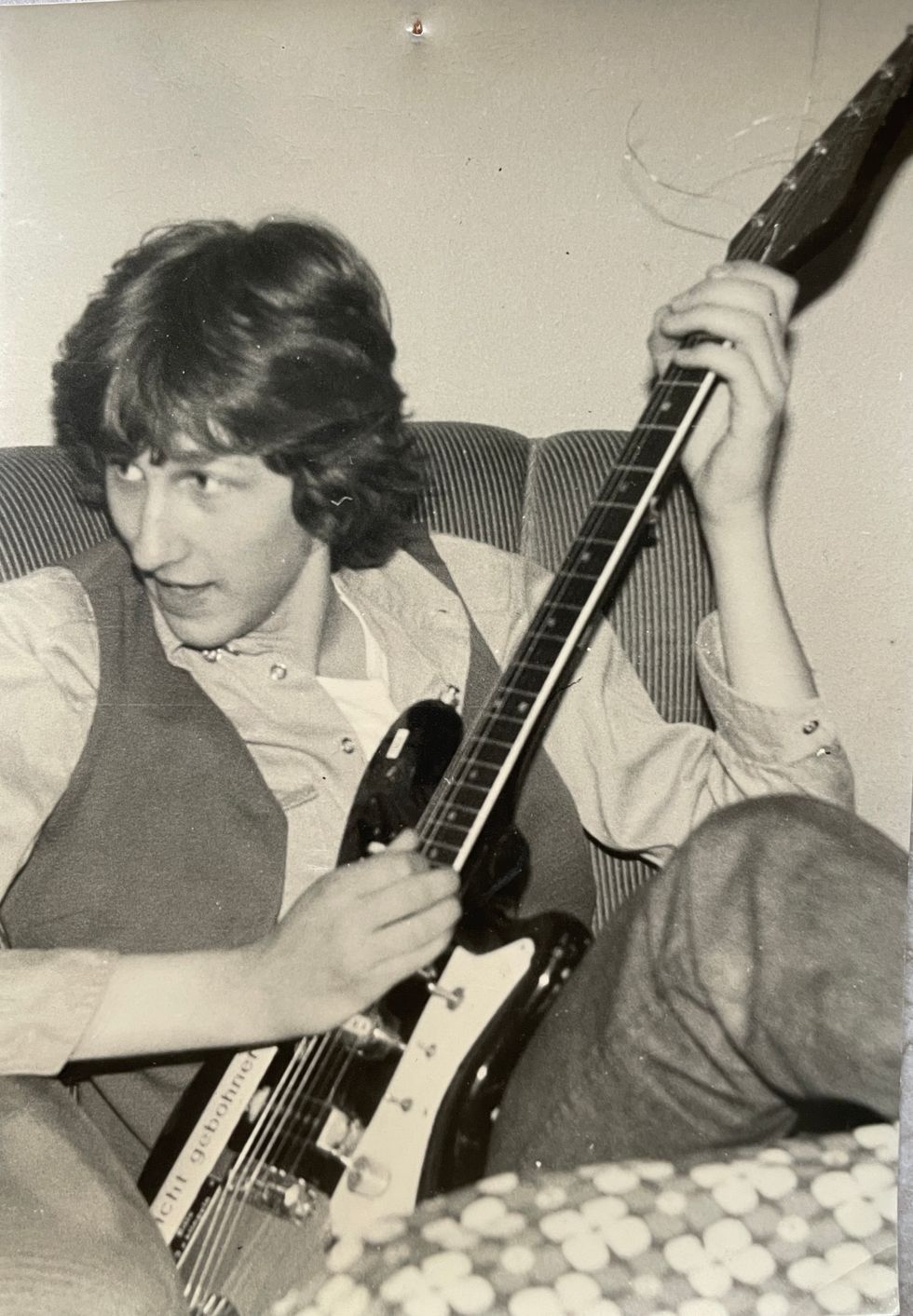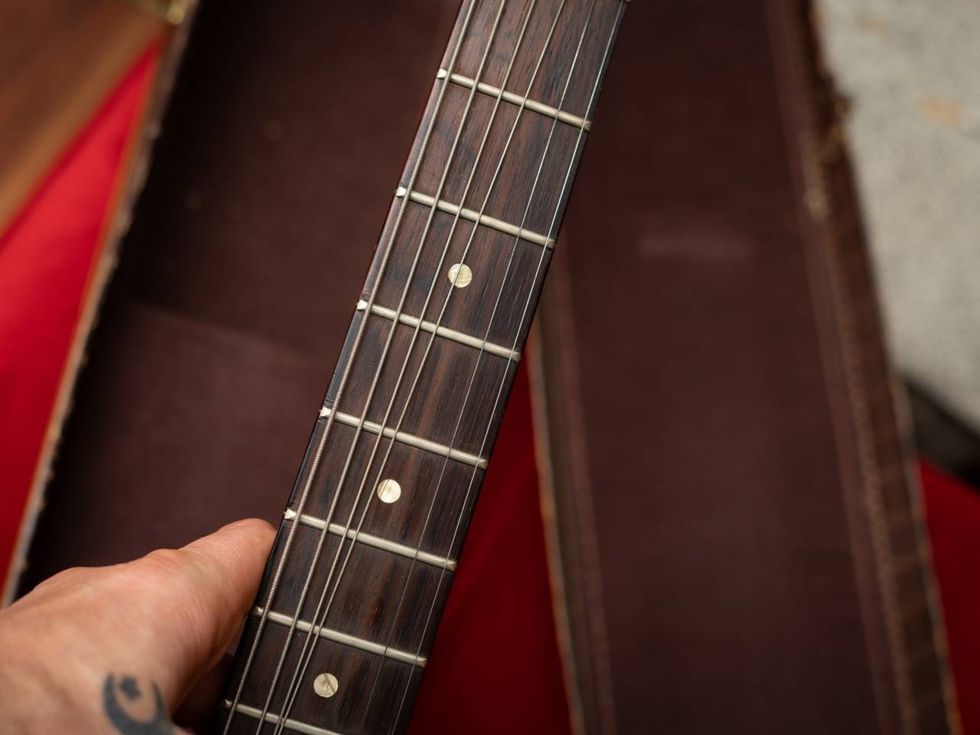Who is the smartest person in any room? Is it the gregarious, self-absorbed know-it-all, who humble brags about the places he’s been and the semi-famous people he has met? Is it the pedantic, degree collector whose domain is having the last word in any conversation-turned-argument? Or is it the man in black, determined to maintain an edgy and sarcastic take on everything? My job here in the pages of Premier Guitar is to be any one, or more, of these archetypes as the storyline demands. I play these parts for your entertainment and your search for knowledge. But, in the social world, this approach doesn’t work so well. The problem with self-aggrandizement is that it sucks up all the mental oxygen in the room. Folks who are hell bent on impressing are too busy to have a good exchange of ideas, and you can’t learn anything new if it’s you doing the talking.
Look for the diamonds in the rough. Whenever I find myself in a new environment, I look for the golden takeaways. It could be a workshop, a recording studio, or just a casual jam session. When I’m consulting on a project, and the situation appears nearly hopeless, I still measure my mental response.
I once was asked to assess a fellow builder’s workflow and systems for crafting guitars, which I get paid to do. Inside his shop, guitar parts were strewn all over the room. Bodies and necks were piled willy-nilly on the table saw, shelves, and even on a stool. Boards were leaning against a wall and blocking a shelf full of tools. Nothing was labeled and the production path was impossible to follow.
My first thought was that he was so disorganized that I needed to talk him into finding a different occupation. Then, in the midst of the shambles, I saw something beautiful. Standing tall like a pillar of brilliance was a vertical fixture with a completed guitar clamped to it. Occupying less than a square foot of shop space, the jig had a hinged front that closed over the face of the instrument. The front and back had drill bushings for every hole that needed to be drilled: machine heads, holes for the pots, bridge, tailpiece, and all the backplate screw holes. I was dumbstruck.
When I asked him about it, he told me that he’d gotten tired of forgetting where everything was exactly located, and what size drill bit went to what part. My response was that he needed to apply the exact same thinking to every step of his process, and that if he could build a fixture like that one, he certainly didn’t need my help. The lesson here was really for me: Even in the most ass-backwards situation, there can be something to learn.
Everyone has something to share if you let them. I’ve been on the other side of the equation plenty of times, and I love it when people contribute just for the sake of sharing. I recall a visit to my shop from my friend Jim, who brought along a friend that was a bassist. Jim is an accomplished and successful studio guy, and he needed a little tune-up on his guitar. When he and his friend Michael walked in, I was playing my Fender Precision and working on something I had in my mind. “I’m trying to emulate organ pedals,” I told them. “You know, like the way a Hammond player bounces the notes off a root?” I played a little of what I’d been attempting. They nodded and made a few suggestions, and then we got to the business of looking at guitars.
After they left, I picked up the bass and tried to incorporate the ideas they’d offered. Later, I looked up “Michael Rhodes” and felt like an idiot. Here was a font of bass knowledge, who had given a few snippets of wisdom without any fanfare. Perhaps if I’d known his resume beforehand, I wouldn’t have had the nerve to demonstrate my sloppy licks in front of him. Once again, I’d learned more than I’d hoped.
No matter what subject, the way to accumulate real know-how is to shut up and let people share their knowledge. Don’t worry about appearing to be smart. That’s the quick way to get the door slammed in your face. My approach is to listen and ask the dumb questions that disarm and get people talking. You might have to pan through a bunch of streambed to find gold, but the nuggets add up to real riches over time.




